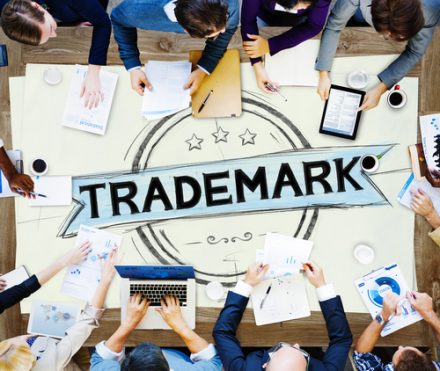
FAQs on Trade Marks
18th March 2024 by Tiff Elmer
Navigating the legal waters of trade mark registration can be complex, but it’s crucial for protecting your brand. Ever wondered what qualifies for registration or when and where to file an application? Perhaps you’re puzzled by classes or doubting if you need a solicitor to handle it all?
Following we strive to demystify trade marks with clear, concise answers to the FAQs that matter most to you.
What is a trade mark?
A trade mark is something that indicates that goods and/or services have been provided by a particular business (must commonly company logos and trading names).
What is capable of being registered as a trade mark?
Generally, the most common trade marks are words (business names and slogans), numerals, logos or pictures. The shape of goods, colours, sounds or even smells in some circumstances can be registered as trade marks too, provided they are distinctive and can be represented graphically.
When should I register my trade mark?
As soon as possible (even before you start using it).
Where should I register my trade mark?
You should register your trade mark in the territories you operate.
Is there a single worldwide application?
A single worldwide application does not exist. You will be required to file individual applications in each territory. There is however a system called the Madrid Protocol which is useful if you would like to register your trade mark in multiple territories at the same time. You must have an existing trade mark application or registration to use as your base for this system. Note that you can also apply for an EU trade mark which protects you in all EU Member States (note this no longer includes the UK).
How long does trade mark protection last?
In the UK and many international territories registered trade mark protection lasts for 10 years and, once the trade mark is registered, protection will back date to the filing date and will be due for renewal on the 10th anniversary. For example, if you file your application on the 05 May 2025, your trade mark will be due for renewal before 05 May 2035. In some international territories, the 10 year period is calculated from the registration date. You can renew your registration for further 10 year periods as long as you continue to use the mark.
How long does it take to register my trade mark?
In the UK it can typically take up to 4-6 months from filing your application for it to proceed through to registration (assuming that no issues or oppositions are raised).
In international territories it can vary, for example the EU may take slighter longer, sometimes 6-8 months as they have an additional one-month publication period compared to the UK. In territories such as the US it can take up to 12-18 months. If instructed, we would provide you with an estimate of timescales.
What does the process involve?
We often recommend a clearance search prior to filing an application to register a trade mark which can usually be completed and reported to you within a week or two of receiving your instructions. This is a search of the trade mark register to identify any existing applications or registrations that are similar to your mark, and may therefore cause an issue if you were to file an application.
In the UK, within a month or two of filing the application to register the trade mark, an examination report will be issued by the registry. If there are any registrability issues we will advise you how to deal with this. If and when any objections have been overcome, the application is then published, allowing third parties the opportunity to object to your application. If no oppositions are raised the trade mark will proceed to registration and a registration certificate will be issued. The same stages are usually carried out in international territories but some periods are longer than others, and can involve additional requirements.
How much will it cost?
The costs are broken down into registry fees and legal fees which will very much depend on how many trade marks you wish to protect and the relevant territories and classes you choose to protect your trade mark in. It will also depend on whether there are any complexities in the matter dealing with any issues or objections raised. Please contact us if you would like to receive a quote tailored to you.
What are classes and what should I choose to protect my trade mark?
As part of your application you will need to list the goods and services that you attach your mark to. Each type of goods and services fall within one or 45 ‘classes’. Each class covers an umbrella of goods / services that are considered to be in the same or similar area of trade. However, some classes closely relate to one another (e.g., a drinks company may want trade mark protection for wine (covered by class 33) and may also want protection for beers (covered by class 32).
Categorising goods and services correctly is a skilled task and takes time. It is important to draft this list of goods and services correctly as failure to do so can remove any real value from the registration. Often, issues arise where an application fails to list of the products that the applicant attaches its mark, or does not use the correct terminology. This is where Laceys can add value.
Do I need to use a solicitor or can I do it myself?
You can file a trade mark yourself, however, we would strongly recommend you seek legal advice, or at the very least seek advice in relation to the drafting of your goods and services for the reasons mentioned above.
I’ve registered my business name at Companies House. Do I now have protection for this name?
No, it is a common misunderstanding that registering a company name at Companies House also provides trade mark protection and protects the company name and reputation from infringers. For more information on this, please see our article on this topic here
Someone is using my registered trade mark, what should I do?
Before you do or say anything to the alleged infringer you should seek legal advice. We can set out the best steps do deal with the infringer tailored to your matter and the stage / complexity of the infringement.
How can I check whether someone else is already using the trade mark I want to register?
Whilst the UK and many other trade mark registers are available to the public, we (and our professional contacts) are skilled in searching these. You can instruct us to conduct trade mark searches on the relevant register.
Should I use the ® or the ™ symbol?
You should only use the ® symbol if your trade mark is registered. You can use the ™ symbol on unregistered trade marks. These symbols on their own do not add any rights per se, but act as a warning to others that you are using the mark in question as a trade mark and intend to protect your rights.
If your question wasn’t addressed here or if you seek further advice, please do not hesitate to contact Tiff Elmer on 01202 377814 or t.elmer@laceyssolicitors.co.uk and she will be happy to help.
Disclaimer: the answers to the above FAQs are some of the common trade mark queries that we receive prior to instruction. The answers do not constitute legal advice and all of the answers will depend on the individual matter.



